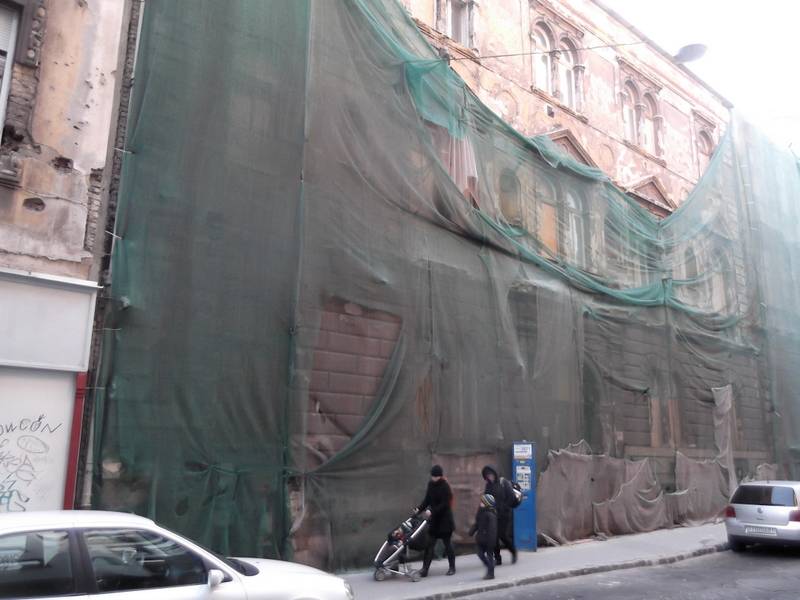Published in New Internationalist
September 2012
At the end of March, a statue disappeared from Budapest’s Kossuth Square. It depicted Mihály Károlyi, president of the first Hungarian republic, a liberal democratic leader long vilified by the right-wing. Ostensibly, the statue’s ‘relocation’ is simply part of the government’s vision of restoring the area around Parliament to its pre-1944 design. But many Hungarians see a deeper meaning: it’s part of Prime Minister Viktor Orbán’s drive to transform the country’s identity, refashioning the nation into a ‘new, modern, right-wing culture.’
Orbán came to power two years ago, riding the wave of popular anger at the previous incumbent Ferenc Gyurcsány, whose admission of having lied to the nation sparked massive protests. Since taking power, Orbán’s Fidesz party has used its two-thirds parliamentary majority to rewrite the constitution, giving the government an alarming degree of control over the judiciary and press: Fidesz appointees now have the power to nominate judges, and impose crippling fines on print, broadcast and online media deemed to be ‘unbalanced’ or ‘offending human dignity.’ They even changed the country’s name, dropping the ‘Republic of’ from Hungary’s official title. Condemnation from abroad, and from the European Commission, has been dismissed as interference by foreign socialists bent on destroying the country’s independence. By drawing on Hungary’s long history of resistance to outside domination, from the 1848 revolution against Austrian rule to the 1956 anti-Soviet uprising, Orbán is skilfully tapping into Hungary’s deep sense of victimhood, presenting his anti-democratic agenda as a national reawakening.
The government’s power is also extending beyond the political sphere, deep into the social and cultural life of the nation. The director of Budapest’s New Theatre was recently sacked to make way for a supporter of the far-right Jobbik party, who aims to replace the ‘degenerate, sick, liberal hegemony’ with works that glorify Hungarian nationalism. The director of the internationally respected Trafó House of Contemporary Arts was also recently forced from his post, and the management of venues such as Gödör, a popular cultural centre that acted as a hub for the city’s alternative youth, was customarily dismissed, the venue closed down and swiftly reopened under new management. To many in Hungary, these individual reappointments and removals are part of a wider pattern, a systematic attack on cultural institutions that don’t support Orbán’s self-proclaimed ‘national revolution.’
The divisions in Hungarian society were striking on March 15th, a holiday commemorating the 1848 uprising. A large pro-Orbán demonstration, supported by right-wing Polish and Lithuanian groups invited by the government, converged outside Parliament to cheer the Prime Minister as he pronounced that Hungary would not be a ‘colony’ of the EU. ‘Hungarians have never liked foreigners telling them what to do,’ said Sándor, a young man in the crowd. ‘First the Austrians, then the Russians, and now the EU. Orbán is acting to make Hungary strong. We can stand on our own feet. For a long time we were living in darkness – now we’re living in light.’ Elsewhere in the city was a small but nasty protest by the Jobbik party, parading in fascistic black uniforms with flags adorned with rovásírás, an ancient runic script some promote as a symbol of Magyar exceptionalism. Two kilometres away on Erzsébet Bridge, tens of thousands attended a demonstration protesting the sweeping changes. Apart from a few EU banners, flags were noticeably absent in this crowd – the right-wing, people told me, has successfully co-opted
‘Orbán is not just stealing our present,’ said Judit, a woman in the anti-government crowd, ‘he is stealing our future too – laying down the foundations of something that will continue after he’s gone.’ And with the vanished statue in Kossuth Square – a symbol of liberal, republican ideals – it seems that Orbán’s government, in another echo of totalitarianism, is attempting to steal Hungary’s past as well.


